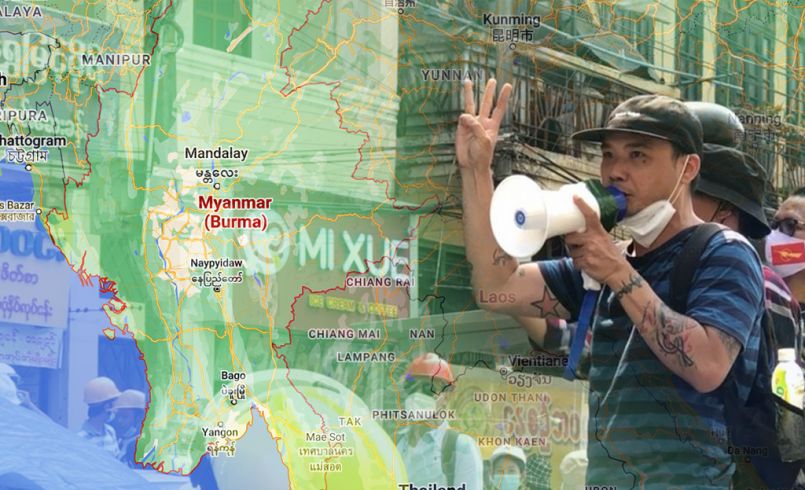- Daniel K. Inouye Asia-Pacific Center for Securi...
- Another Strategic Error from Myanmar’s Military...
Another Strategic Error from Myanmar’s Military Junta
phyozayarthaw.jpg

By Dr. Miemie Winn Byrd
Dr. Byrd is a professor at the Daniel K. Inouye Asia Pacific Center for Security Studies. The views expressed in this article are her own and do not necessarily reflect those of DKI APCSS, the U.S. Department of Defense, or the U.S. Government.
On Monday morning (July 25, 2022), Myanmar’s military junta released the news that they executed four political prisoners who were leaders in the movement for democracy. Social media went into over-drive expressing outrage, sorrow, and defiance against the military junta. Domestically and internationally, communities swiftly condemned the unjust execution of the democracy movement leaders.
The United Nations Special Rapporteur Tom Andrews wrote, “These individuals were tried, convicted, and sentenced by a military tribunal without the right of appeal and reportedly without legal counsel, in violation of international human rights law…”
The junta executed these political prisoners while it was in the midst of dialoguing with the ASEAN (Association of Southeast Asian Nations) and the Government of Japan in an effort towards peace and reconciliation. ASEAN and Japan’s engagement with the junta was highly controversial and politically risky for both parties. As such, this latest action risks the credibility and reputation of ASEAN and Japan in the international arena. The military junta continues to act with impunity and disrespects its dialogue partners.
The ASEAN Chair Cambodia released a statement, “the implementation of the death sentences just a week before the 55th ASEAN ministerial meeting is highly reprehensible.”
Japan Foreign Minister Yoshimasa Hayashi said, “It goes against Japan’s repeated urging to settle the situation in Myanmar peacefully as well as its demands to free detainees.”
Will this latest action prompt ASEAN and Japan to reconsider their strategy of engagement with the Myanmar military junta? It appears that the junta has used the ASEAN and Japan’s engagements as a scheme to establish some level of legitimacy for their regime. Based on the widespread outrage and new expressions of defiance across the social and traditional media, the military junta has likely miscalculated again.
A year and half since the coup and prior to the execution, some of the resistance movements were slowing down due to fatigue. The execution seems to have provided the fuel needed to reenergize the movement. The execution seems to have reinvigorated the people’s sentiment from fear to hatred against the junta. This impact is a classic manifestation of Machiavelli’s warning on the Prince’s over-use of fear against its subjects. This action is widening the movement, further inflaming the people, and re-cementing their resolve to reject and remove the military junta.
This latest action has come on the heels of dangerously depleting foreign exchange reserves in the junta’s coffers. Last week in an act of desperation, the junta’s Central Bank of Myanmar has ordered businesses and individuals to halt paying debts owed to foreign creditors. At the same time, the military continues to experience a high rate of casualties during the clashes with the opposition’s lightly trained, poorly equipped, and largely unorganized coalition forces. An unprecedented level of defections within the ranks is also degrading the junta’s capability and effectiveness on the battlefield.
Looking across the DIME (Diplomacy, Information, Military, and Economics) spectrum, the junta is on its last leg. This may have been a desperate attempt to make some gains. Instead, the junta consistently miscalculates because its leaders are very much out of touch with the populace and have become increasingly isolated inside the walls of Nay Pyi Taw. With only having brute force in their tool bag, the junta ensured the demise of four of its political prisoners. By doing so, they very well may have put the nail in their own coffin. Time will tell.


